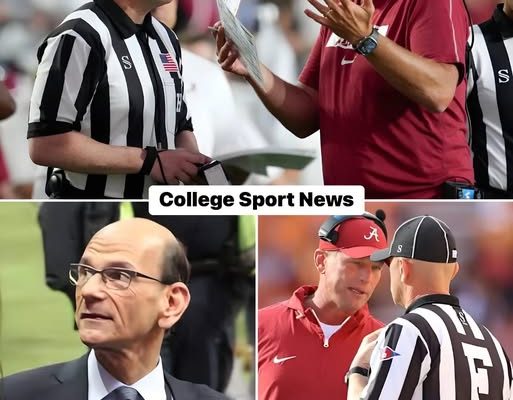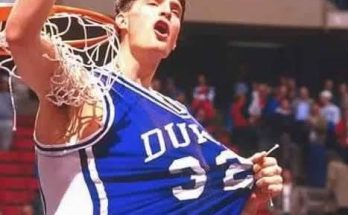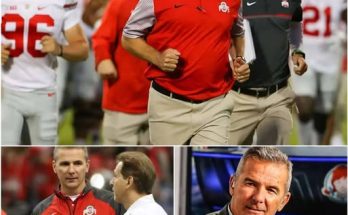Clemson football entered the 2025 season with lofty expectations, but after just one game, the conversation around Dabo Swinney and his once-dominant program has taken a sharp turn. ESPN analyst Paul Finebaum, known for never holding back when it comes to Southern football storylines, wasted no time declaring what many have quietly wondered: is the Clemson dynasty over? After the Tigers suffered a 17-10 home loss to No. 9 LSU on August 30, Finebaum openly questioned whether Clemson has the chops to still be considered a true national power. His words weren’t subtle, as he bluntly stated, “Dabo’s dynasty is done.” That stings for a program that only a few years ago stood at the pinnacle of the sport, consistently battling Alabama, Ohio State, and other heavyweights for College Football Playoff supremacy. But the way Clemson lost, combined with its recent track record against SEC competition, fuels the debate about what has gone wrong.
The numbers tell a frustrating story. Clemson is now 0-4 against SEC opponents over the past two seasons. For a program that once boasted about not being afraid of anyone, that kind of record shakes credibility. Finebaum pointed this out on The Matt Barrie Show, emphasizing that falling short repeatedly on the biggest stages damages Clemson’s reputation, particularly when compared to rivals who thrive against elite opponents. For years, the Tigers thrived by proving themselves outside the ACC, winning marquee matchups in bowl games and playoff semifinals. But lately, that edge has disappeared. LSU exposed them physically, especially in the trenches. Clemson managed just 261 total yards, and more concerningly, they failed to score a single point in the second half. That’s not the mark of a team with national title DNA. It’s the mark of a team that has lost its bite when the spotlight is brightest.
Finebaum admitted something rare in the aftermath: he had picked Clemson to win. He had bought into the offseason optimism that surrounded Dabo’s squad, the belief that Cade Klubnik would finally blossom into the quarterback Swinney promised, that the offensive line would take a step forward, and that the defense would return to its suffocating ways. Instead, LSU brought a dose of reality. They outmuscled Clemson on both sides of the ball, and their defensive front overwhelmed Klubnik and the running game. Clemson’s offense never found rhythm, and as the game wore on, their lack of explosiveness was glaring. Finebaum’s conclusion wasn’t just a hot take—it was an observation rooted in the fact that Clemson no longer looks like the juggernaut it once was.
Of course, Dabo Swinney himself wasn’t about to quietly accept that narrative. In the postgame press conference, he challenged the media directly, telling them to “bring it on” when criticizing his offense. He pointed to Klubnik’s average performance as an area that deserves scrutiny but defended the team’s preparation and effort. That kind of defiance has long been part of Dabo’s persona, rallying against critics and positioning Clemson as an underdog, even when they were favorites. But the difference now is that the results don’t fully back him up. Clemson has dropped in the AP Poll from No. 4 to No. 8, and while a softer ACC schedule lies ahead, the doubts won’t disappear until they prove themselves against quality competition again.
The big question remains: what happened to the dynasty? For nearly a decade, Clemson was the model of consistency. From 2015 to 2020, the Tigers were perennial playoff contenders, winning two national championships behind Deshaun Watson and Trevor Lawrence. They recruited elite talent, developed NFL stars, and looked like a machine capable of standing toe-to-toe with Alabama, Ohio State, or Georgia. But since Lawrence’s departure, the program has felt more ordinary. Recruiting has remained solid but not quite at the historic level of SEC powers. Offensive innovation has stagnated compared to the rapid evolution seen at places like Georgia and Michigan. And while the ACC provided Clemson plenty of wins, their inability to translate that dominance into victories against SEC foes has chipped away at the aura they once had.
Cade Klubnik, while talented, hasn’t looked like the transformational figure needed to lift Clemson back to championship heights. Against LSU, he was pedestrian—making some safe throws but failing to stretch the field or make clutch plays when it mattered most. For a fanbase spoiled by Watson and Lawrence, the contrast is hard to ignore. Without elite quarterback play, Clemson’s margin for error shrinks significantly, especially when facing teams with deeper rosters and stronger line play. Swinney’s loyalty to his staff and his reluctance to embrace changes, particularly in offensive philosophy, also raise questions. Critics argue that Clemson’s playbook feels outdated, predictable, and unable to keep up with modern college football trends.
Still, writing off Clemson entirely might be premature. The Tigers remain one of the most talented teams in the country, and the ACC schedule does provide opportunities to regain confidence. Appalachian State is next, followed by several games where Clemson will be heavy favorites. If they dominate those contests, they’ll stay in the playoff conversation. But Finebaum’s comments strike a nerve because they reflect what many fans and analysts already suspect: Clemson is no longer feared in the same way they once were. The dynasty label implies not just winning but sustaining dominance over time, and right now, Clemson looks more like a very good program than an untouchable one.
What makes Finebaum’s critique sting even more is the broader context of SEC supremacy. Programs like Georgia and Alabama continue to reload year after year, and LSU has once again shown it can produce physical, battle-tested squads. Clemson, by contrast, struggles in these matchups, and that raises doubts about whether the Tigers can truly belong among the elite without proving it outside of the ACC. Swinney can insist his team is “a good one,” but as Finebaum bluntly put it, “They’re a good team, but not elite.” For a coach who built his reputation on breaking into the SEC-dominated hierarchy, that’s a painful reversal.
Fans are divided in their reactions. Some still believe Dabo has earned the benefit of the doubt, pointing to his two national titles and history of player development as proof he can turn things around. Others think Finebaum is simply saying out loud what the results have been showing—that the magic has faded, and without significant change, Clemson will continue to slide from the very top tier. Social media lit up after the LSU loss, with some Clemson faithful defending their team and others venting frustration at another high-profile setback. This emotional divide reflects the stakes for Clemson football: they are no longer chasing their first title; they are fighting to prove they can sustain greatness in a landscape that evolves quickly.
Looking forward, the path isn’t impossible for Clemson. If Klubnik improves, if the offense develops some balance, and if the defense continues to grow, the Tigers could still compete for an ACC crown and possibly sneak into the playoff. But national respect is harder to regain. Every future game will be measured not just by the scoreboard but by how Clemson looks compared to the true elites. Will they look fast, physical, and innovative—or will they look like a program living off past glory? Finebaum’s words may seem harsh, but they could also serve as a wake-up call for a program that risks slipping into the “good but not great” category.
The storyline moving forward isn’t just about wins and losses—it’s about identity. Dabo Swinney built Clemson into a dynasty by defying expectations, by beating the big dogs, and by creating belief in something larger than the program’s history. Now, with mounting SEC failures and growing doubt, that identity feels under threat. Whether Clemson can reclaim its edge remains to be seen, but the scrutiny will not ease anytime soon. If anything, Finebaum’s bold declaration ensures that every Clemson performance this season will be viewed through the lens of “dynasty or decline.”
Clemson fans, what do you think? Is Finebaum right to say the dynasty is done, or is this just a temporary setback that the Tigers can overcome? Do you believe Cade Klubnik can grow into the quarterback this team needs, or is Dabo Swinney holding the program back by resisting change? Drop your thoughts in the comments—I’d love to hear your perspective. The conversation around Clemson football is as fiery as ever, and your voice matters in shaping how we view the future of this once-dominant program.



